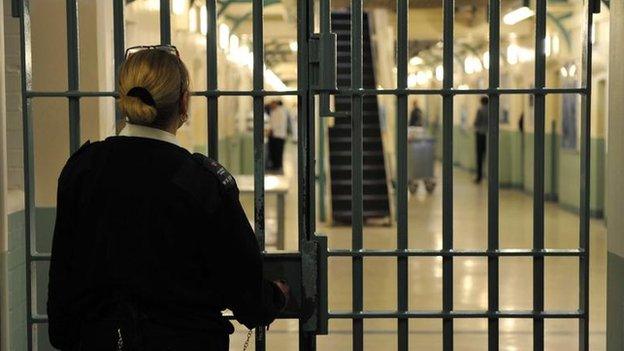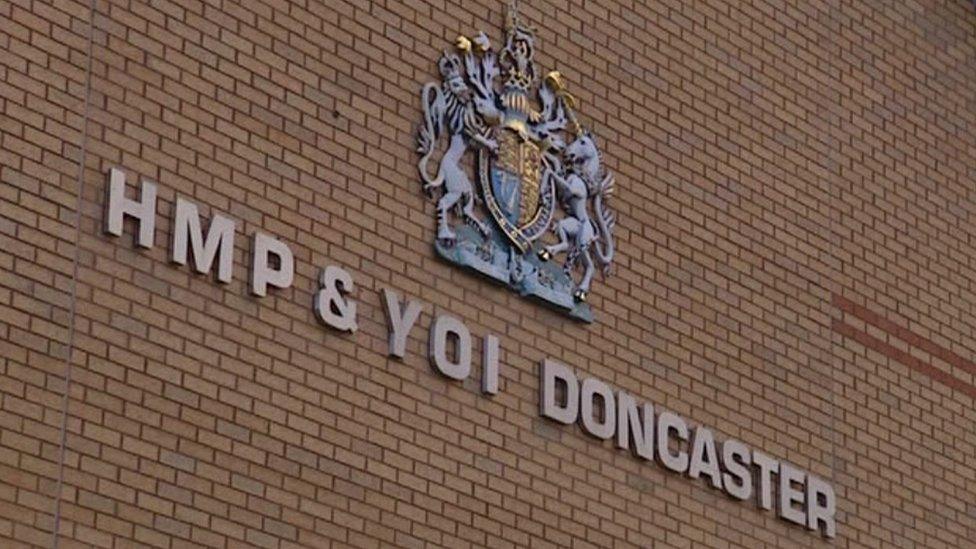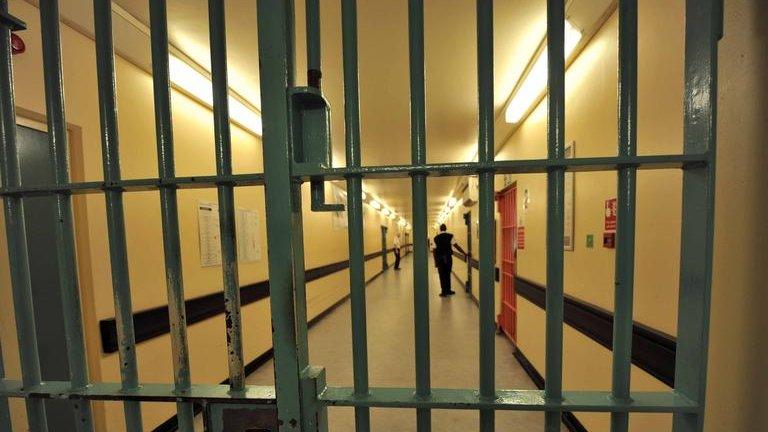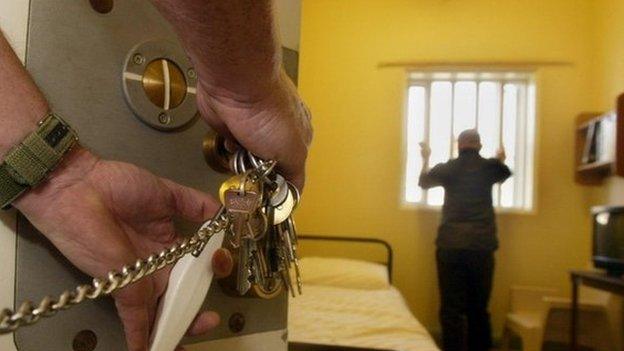Prisoner suicide report calls for action on young inmates
- Published

Transferring prisoners is an "unfortunate consequence" of overcrowding, the report says
Prisons must do more to stop young inmates taking their own lives, a government investigator has said.
In a report on 80 self-inflicted deaths, external of inmates aged 18-24 over seven years in England and Wales, Nigel Newcomen, Prisons and Probation Ombudsman, raised issues such as "poor" risk assessments.
He noted the case of a prisoner with disabilities who killed himself after being "tricked" into leaving his cell.
The Prison Service said preventing suicides was a "key priority".
The report found:
the potential impact of bullying on the risk of self-harm or suicide was "too rarely considered"
prisons needed a more "balanced, consistent and holistic approach" to violent and abusive prisoners, whose behaviour can "mask vulnerability and mental health problems"
suicide risk assessments and monitoring were too often poor, and in a number of cases concerns raised by families were "not acted upon by staff"
many young adults were distressed at being separated from their family in a "crowded system"
Mr Newcomen also noted that one in five of the young adults sampled were foreign nationals.
His report said that, for those serving longer sentences, the possibility of deportation was "often a source of distress but communication with immigration authorities was often formal and bureaucratic".
'Unfortunate consequence'
The 24-year-old who was "tricked" became distressed when he learned that he was being moved from a prison in Lewes, Sussex, to the Isle of Wight.
The new prison was a long way from his friends and family and two fellow inmates who apparently helped him with his disability, the report said.
It revealed that staff at the Sussex prison lured him out of his cell by telling him a senior prison officer wanted to speak to him in his office.
The report said the man had a history of self-harm, and hanged himself shortly after arriving on the Isle of Wight.
The ombudsman concluded that transferring prisoners is an "unfortunate consequence" of overcrowding, but the authorities should consider the effect on vulnerable inmates.
Other cases noted in the report included a 19-year-old prisoner who killed himself after being assaulted and verbally abused by prisoners who had read about his offence in a newspaper.
In another example, an inmate with a history of mental health problems and previous suicide attempts discovered his girlfriend had ended their relationship and, on the same afternoon, that a close relative had died.
Despite this, his level of risk was never reviewed and two days later he was found hanged in his cell.
The report also found that a fifth of the 18 to 24-year-olds examined had experienced bullying in the month before their death, compared to 13% of other prisoners.
Mr Newcomen recommended that prisons act "more robustly" over bullying allegations and refer people more quickly for mental health treatment.
'Festering in cells'
Deborah Coles, co-director of Inquest, which advises people bereaved by a death in custody, said: "These deaths are the most extreme outcome of a system that fails some of society's most troubled and disadvantaged young people, many just out of childhood."
Labour's shadow justice secretary Sadiq Khan, who is hosting a conference on the "worsening state of jails", said current evidence about the prison system "points towards meltdown".
He said ministers were in "total denial" about the problems, including rising numbers of inmates dying and prisoners "festering in their cells" instead of receiving training.
In 2013-14, 88 prisoners of all ages in England and Wales took their own lives - up from 52 in 2012-13.
A Prison Service spokesman said the reasons for any suicide were "complex and individual" and prevention was a "key priority".
"We have a high proportion of people with mental health issues in the prison population, and we are working very hard to understand the recent fluctuations in self-inflicted deaths," he said.
"We always have and we always will ensure there are enough staff to deliver safe and effective prison regimes."
- Published13 August 2014

- Published12 August 2014

- Published31 July 2014

- Published16 June 2014
